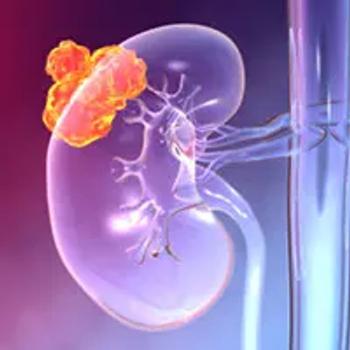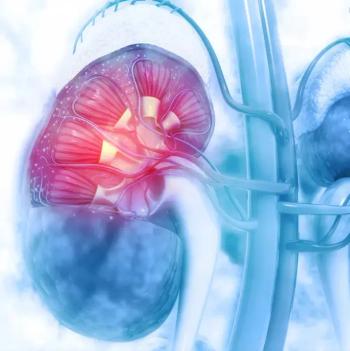
Investigators who champion patient-partnered cancer research have experienced challenges to their effective implementation.

Your AI-Trained Oncology Knowledge Connection!


Kyle Doherty joined MJH Life Sciences in 2021 and is the lead editor for Oncology Fellows. He also produces print content for OncologyLive, as well as news and conference updates for OncLive.com. Email: kdoherty@mjhlifesciences.com

Investigators who champion patient-partnered cancer research have experienced challenges to their effective implementation.

THIO plus cemiplimab displayed durable activity in patients with advanced checkpoint inhibitor–resistant NSCLC.

Brian A. Van Tine, MD, PhD, and David S. Hong, MD, discuss the MAGEA4 pathway and the FDA approval of afami-cel in synovial sarcoma.

NICE issued a final guidance recommending reimbursement of avapritinib monotherapy in adult patients with ASM, SM-AHN, or mast cell leukemia.

MI Cancer Seek has been granted FDA approval as a companion diagnostic for patients with cancer who may benefit from targeted therapy.

Experts in gynecologic oncology highlight multiple practice-altering clinical trial updates presented at ESMO and beyond in ovarian, cervical, and endometrial cancers.

The phase 2 study of masofaniten plus enzalutamide in mCRPC naive to second-generation antiandrogen therapy has been discontinued.

The FDA has granted regenerative medicine advanced therapy to ALLO-316 in CD70-positive advanced or metastatic renal cell carcinoma.

The FDA has announced that BioZorb Markers and BioZorb LP Markers should no longer be used.

The October 2024 NCCN Clinical Practice Guidelines in Oncology for breast cancer recommend ribociclib plus an AI in adjuvant HR+/HER2– early breast cancer.

Investigators are examining and implementing several innovations that they hope will combat the persistent issue of limited access to cancer care for patients living in rural areas.

A panel of experts detail updated data and developments in the advanced renal cell carcinoma space with immunotherapy-based combination regimens.

The European Commission has approved daratumumab plus bortezomib, lenalidomide, and dexamethasone in ASCT-eligible, newly diagnosed multiple myeloma.

Faculty at Washington University School of Medicine in St. Louis have designed a clinical trial development fellowship education program.

Oncology fellows with aspirations of entering the lung cancer field gathered in Chicago, Illinois, to share findings from their research, network, and participate in panel discussions featuring expert faculty

Jerome D. Winegarden, MD, discusses the importance of recruiting international students to such programs.

Ian Krop, MD, PhD, and Aditya Bardia, MD, MPH, FASCO, detail how TROP2-directed ADCs have generated excitement in breast cancer and other solid tumors.

A panel of clinicians in the CRC field discussed findings from pivotal clinical trials that were primarily shared during the 2024 ASCO Annual Meeting.

IMA203, a TCR-T agent targeting PRAME, was safe and effective in patients with heavily pretreated melanoma.

Neeraj Agarwal, MD, FASCO; Andrew J. Armstrong, MD, MSc; and Timothy A. Yap, MBBS, PhD, FRCP, detail the latest research on PARP1-selective inhibitors in oncology.

An update on PFS and OS data from the phase 1 MAGIC-G1 study of MTX110 in recurrent glioblastoma has been released.

A committee recommended a phase 1/2 study of ribaxamase for the prevention of acute graft-vs-host-disease proceed with enrollment for a third cohort.

A panel of experts take stock of the current standing of HER2-directed ADCs in solid tumors, including breast, gynecologic, GI, lung, and GU cancers.

The addition of fecal microbiota transplantation to pembrolizumab and axitinib raised the efficacy of the combination in metastatic renal cell carcinoma.

The phase 3 KarMMa-9 trial of ide-cel plus lenalidomide maintenance in newly diagnosed multiple myeloma after ASCT has discontinued enrollment.

Japan’s Ministry of Health, Labour, and Welfare approved fruquintinib in metastatic colorectal cancer following progression with chemotherapy.

ICT01 plus azacitidine and venetoclax has received fast track designation from the FDA in patients with untreated AML unfit for induction chemotherapy.

Ipilimumab given in combination with nivolumab met the primary end point of 12-month OS rate vs SOC in patients with nccRCC in the SUNNIFORECAST trial.

Benmelstobart plus anlotinib improved PFS, OS, and ORR vs sunitinib in first-line advanced renal cell carcinoma.

Perioperative nivolumab extended event-free survival vs placebo in patients with resectable non–small cell lung cancer.